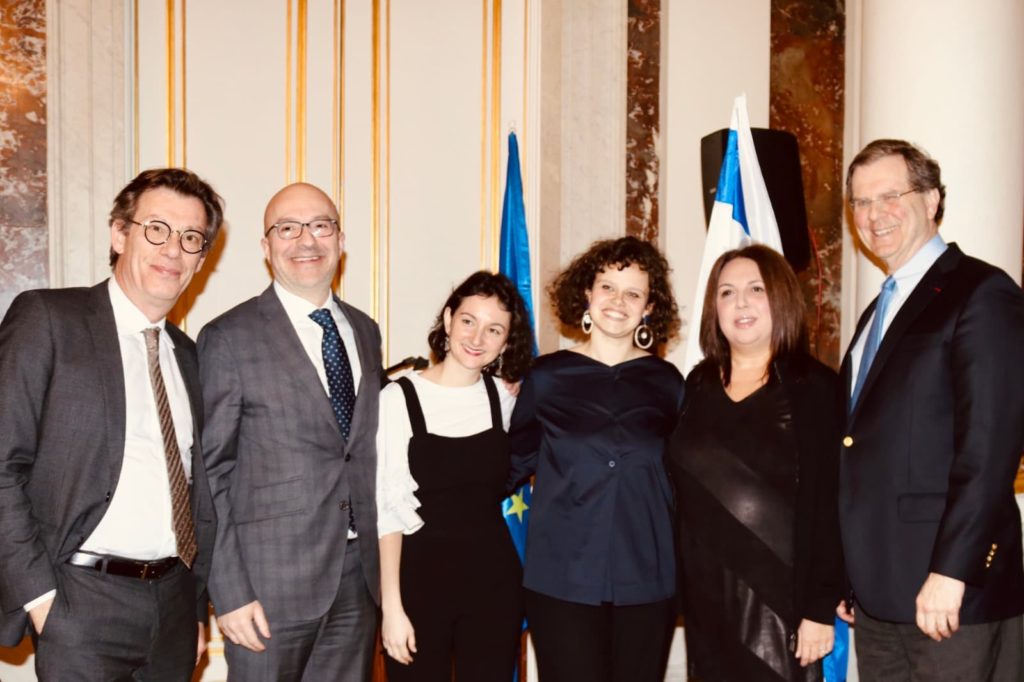
B’nai B’rith Europe attended an intergenerational conversation organised by B’nai B’rith International, AJC, KAS and the Israel Mission to the EU and NATO
For International Holocaust Remembrance Day, B’nai B’rith International, together with the American Jewish Committee (AJC), the Israel Mission to the EU and NATO and Konrad Adenauer Stiftung (KAS) organized an event entitled, “Remembrance Today: an intergenerational conversation” held at the Académie Royale de Belgique in Brussels, on January the 28th 2020. Representing B’nai B’rith Europe was Valerie Achache, the Secretary-General of the organisation.
Ambassador of Israel to the EU and NATO, Aharon Leshno-Yaar and Ambassador of Germany to the EU, Michael Clauss, both addressed the audience of more than 150 guests, which included diplomats and members of the European Parliament. In their respective addresses, both ambassadors emphasized the importance of preserving the memory of the Holocaust and urged that the rise in antisemitism, particularly in Europe and North America, must be countered.
A powerful keynote address was delivered by the Vice President of the EU Commission, Margaritis Schinas. Schinas, himself from Thessaloniki, a city with a once thriving Jewish community before WWII, expressed his deep personal connection and insisted, “We have to keep our window into the past wide open. We pledged to keep the legacy of the victims of the Shoah alive. This must be more than a promise. This memory is at the core of the EU.”
Director of B’nai B’rith EU Affairs, Alina Bricman, moderated the intergenerational panel discussion between Holocaust survivor, Baron Julien Klener and British Jewish youth activist, Hannah Rose. Bricman proposed a reflection on the shifting form of the collective exercise of remembrance: “Remembrance as the foundation of the rebirth of Europe, as the recollection of history, the human-centered preservation of memory, as the acknowledgement of responsibility and the continuous and concerted effort to right the wrongs of the past. At its lowest it is revisionism, the rewriting of history, and at its best it is an inspiration for solidarity with others in the here and now,” and invited the two panelists to reflect on the state of remembrance today. In the discussion Klener shared his personal story as a hidden child during WWII and also spoke about the need of future generations to bear witness to such stories, to ensure that both those who died and survived the Shoah will never be forgotten. Rose emphasized the responsibility of the young generation, saying “It is our imperative not just to teach the lessons of the Holocaust, but to practice them every day and embed them into our activism.”
Credits: B’nai B’rith Magazine
